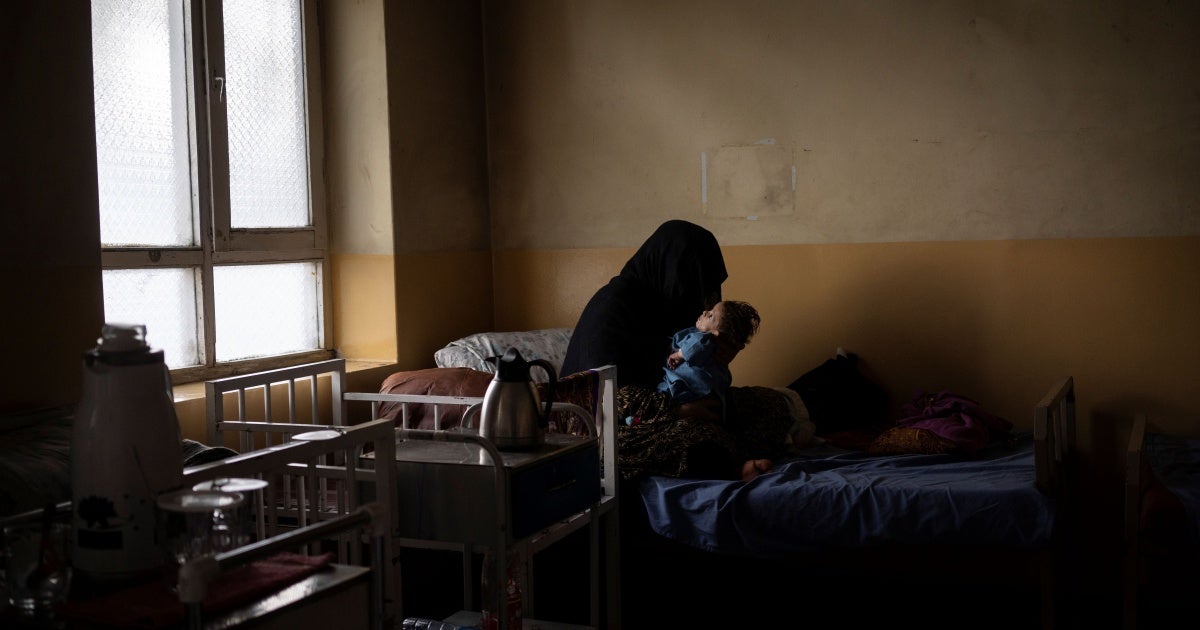|
Getting your Trinity Audio player ready...
|
- The loss of foreign assistance has severely harmed Afghanistan’s healthcare system and exacerbated malnutrition and illnesses resulting from inadequate medical care.
- Taliban restrictions on women and girls have impeded access to health care, jeopardizing their right to health; education bans guarantee future shortages of female health workers.
- Special Envoys meeting in Doha on February 18, 2024, should condemn Taliban abuses while supporting resources for the healthcare system and essential services such as banking, water management, and electricity.
(New York) – The sharp reduction in foreign assistance for Afghanistan’s public health system, alongside the Taliban’s serious abuses against women and girls have jeopardized the right to health for millions of Afghans, Human Rights Watch said in a report released today. The healthcare crisis has made the Afghan population increasingly vulnerable to severe malnutrition and illness.
The 38-page report, “‘A Disaster for the Foreseeable Future’: Afghanistan’s Healthcare Crisis,” describes how the collapse of Afghanistan’s economy after the Taliban takeover in August 2021 inflicted severe harm on the country’s healthcare infrastructure. Donors’ decisions to reduce humanitarian aid have further weakened health care access, destabilized the economy, and worsened food insecurity. The Taliban’s abusive policies and practices have greatly exacerbated the crisis. Bans on education for women and girls have blocked most training for future female healthcare workers, ensuring shortages for the foreseeable future.
“The loss of foreign development aid and Taliban rights violations have caused a catastrophic health crisis in Afghanistan that is disproportionately harming women and girls,” said Fereshta Abbasi, Afghanistan researcher at Human Rights Watch. “The Taliban have severely obstructed women from providing or accessing health care, while the cost of treatment and medicine has put care out of reach for many Afghans.”
Human Rights Watch interviewed Afghan and foreign aid officials, healthcare workers, and people seeking health care in 16 of Afghanistan’s 34 provinces between February 2023 and January 2024.
At the planned February 18 meeting of special envoys from key countries organized by the United Nations, governments should press Taliban leaders to remove restrictions impeding people’s access to health care, including bans on women’s education and employment. The special envoys should also address structural problems that have undermined Afghanistan’s economic stability, including those affecting water management, electrical supply, and the banking system.
Over the previous two decades, the Afghan government had depended on international development support from donors to fund essential services like primary health care, even as Afghans paid most healthcare costs from their own pockets. The previous government’s contribution to the public primary care system was negligible, leaving the system vulnerable to collapse once aid was withdrawn. Taliban authorities have also allocated little funding for health care, and humanitarian organizations have struggled to fill the void amid funding cuts that threaten this lifeline.
While Afghans living in poverty have always faced difficulties obtaining health care because of costs, a rising number of Afghans now struggle to pay for food and are often unable to cover the price of medicines and transportation to reach health services.
A 54-year-old man living with a kidney infection said, “Since the Taliban took over, the price of my medications has nearly doubled. This is too much for anyone who doesn’t have a job.”
The United Nations estimates that 23.7 million people – more than half of Afghanistan’s population – will need humanitarian assistance in 2024. While humanitarian agencies provide life-saving assistance, they cannot replace all the essential services that had previously depended on donor support.
As a Mercy Corps official said in September 2023, “The humanitarian response in Afghanistan simply cannot keep pace with the country’s worsening conditions.”
The Taliban’s ban on women’s employment with humanitarian agencies has compounded the crisis by creating additional obstacles to delivering assistance equitably and by depriving women and their families of income. Strict hijab and mahram (male guardian) regulations have impeded women from traveling for work or to receive treatment.
A doctor in Samangan said: “The Taliban have instructed us not to treat any female patient who is not accompanied by a mahram or is not in full hijab.”
Among those most affected by Afghanistan’s healthcare crisis are people with disabilities. Due to decades of conflict and poor maternal health care, Afghanistan has one of the largest populations in the world of people with disabilities. Because of aid shortfalls, the few services for people with disabilities, including physical rehabilitation and mental health support, have largely disappeared.
A counselor based in Kabul said that “even before the Taliban takeover, there were few donors to provide mental health services in major cities. Now most of them are gone, while people are in in greater need.” The Taliban’s restrictive policies further impede access to services for women and girls with disabilities.
“The unprecedented economic crisis in Afghanistan has meant that millions are facing life-threatening conditions,” Abbasi said. “The situation demands more than humanitarian aid, it requires sustainable efforts to avert further economic decline and alleviate the immense suffering of the Afghan population.”



